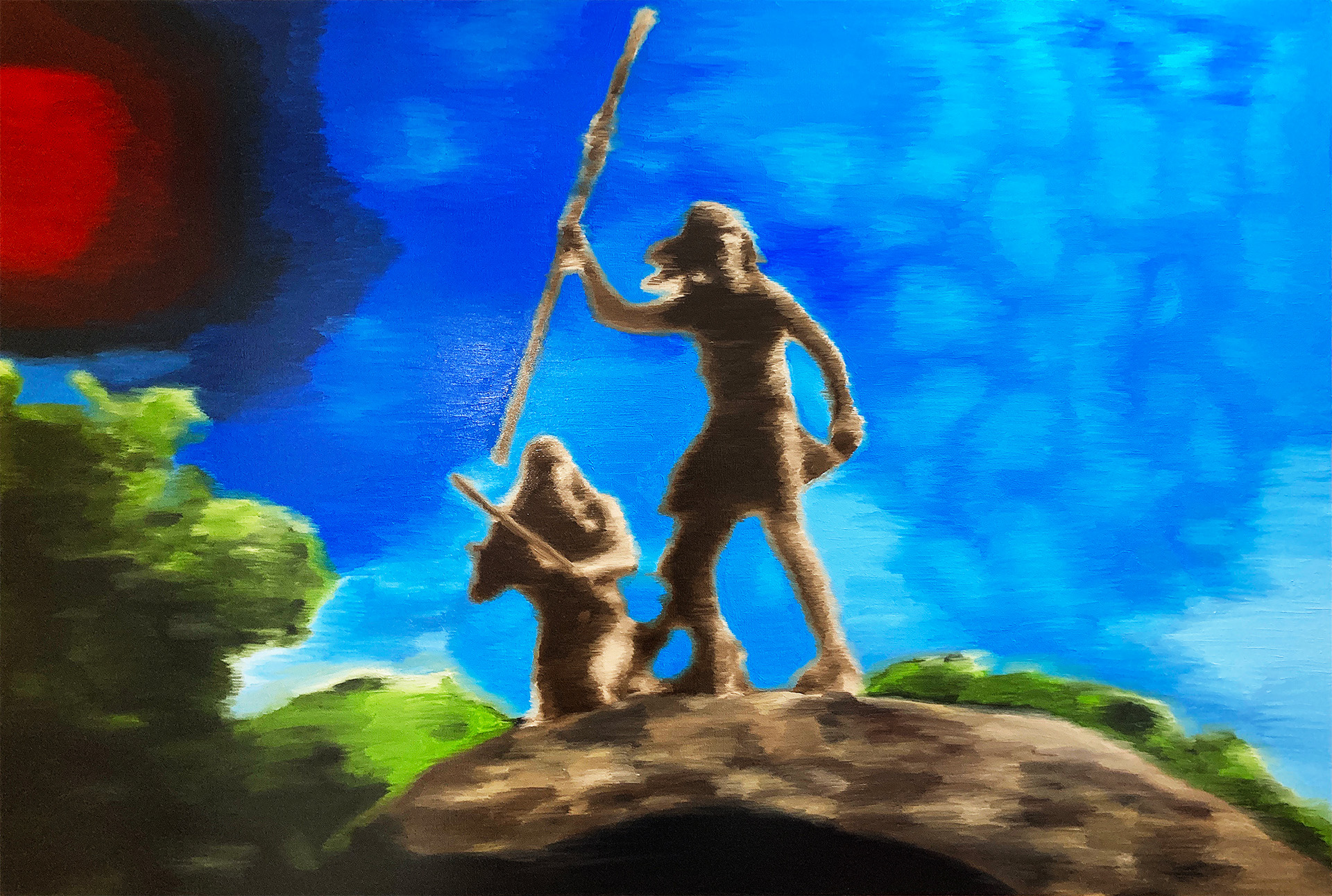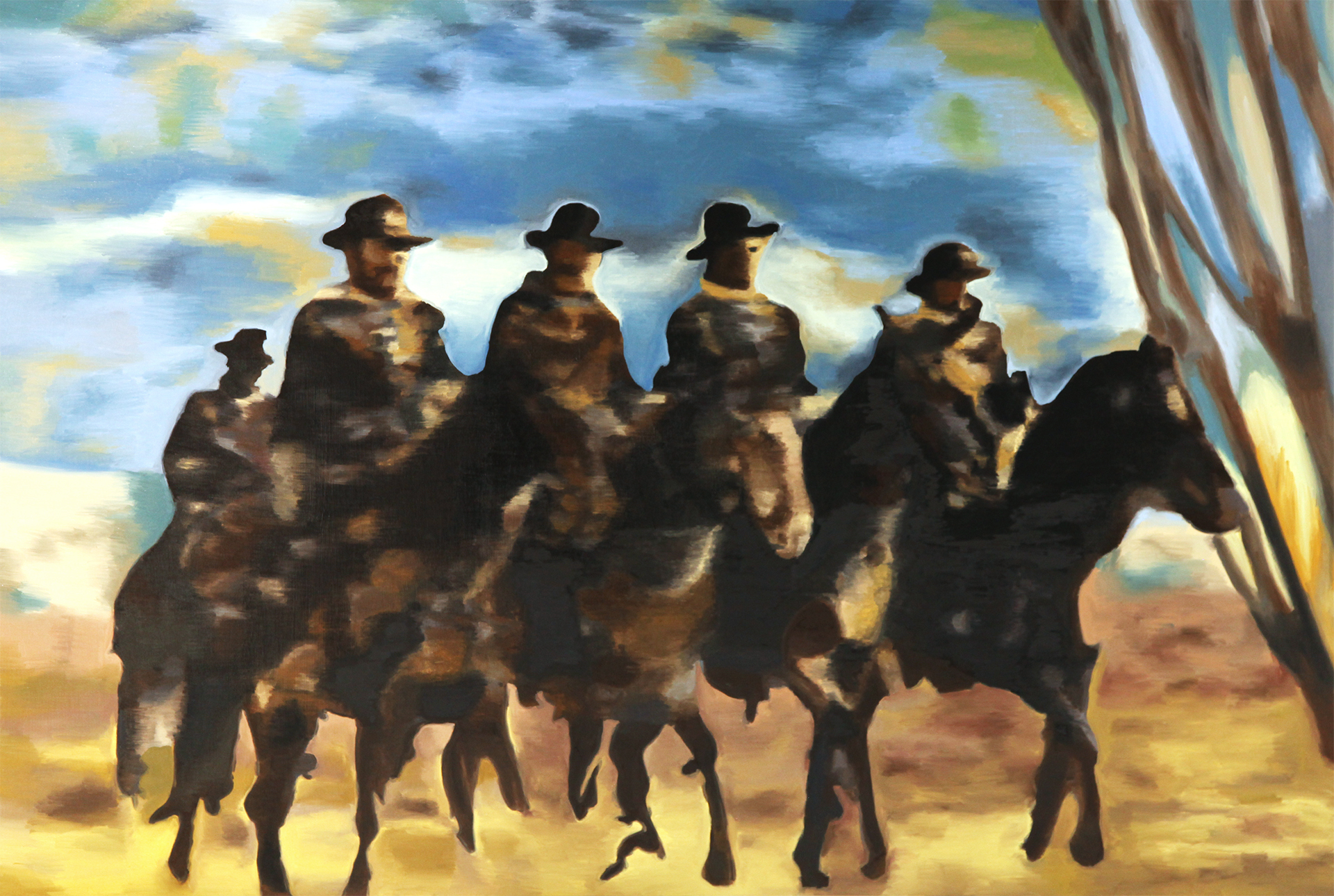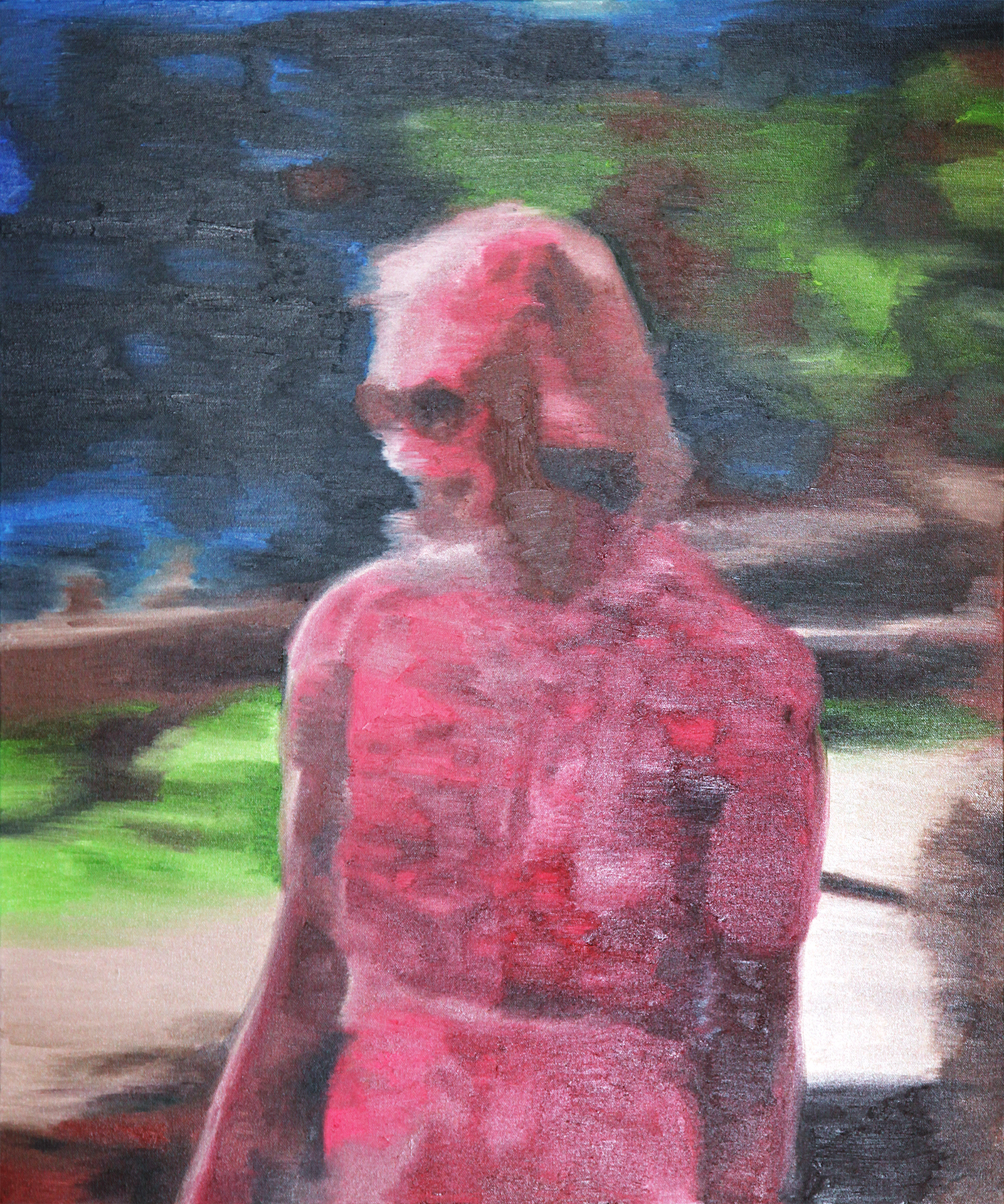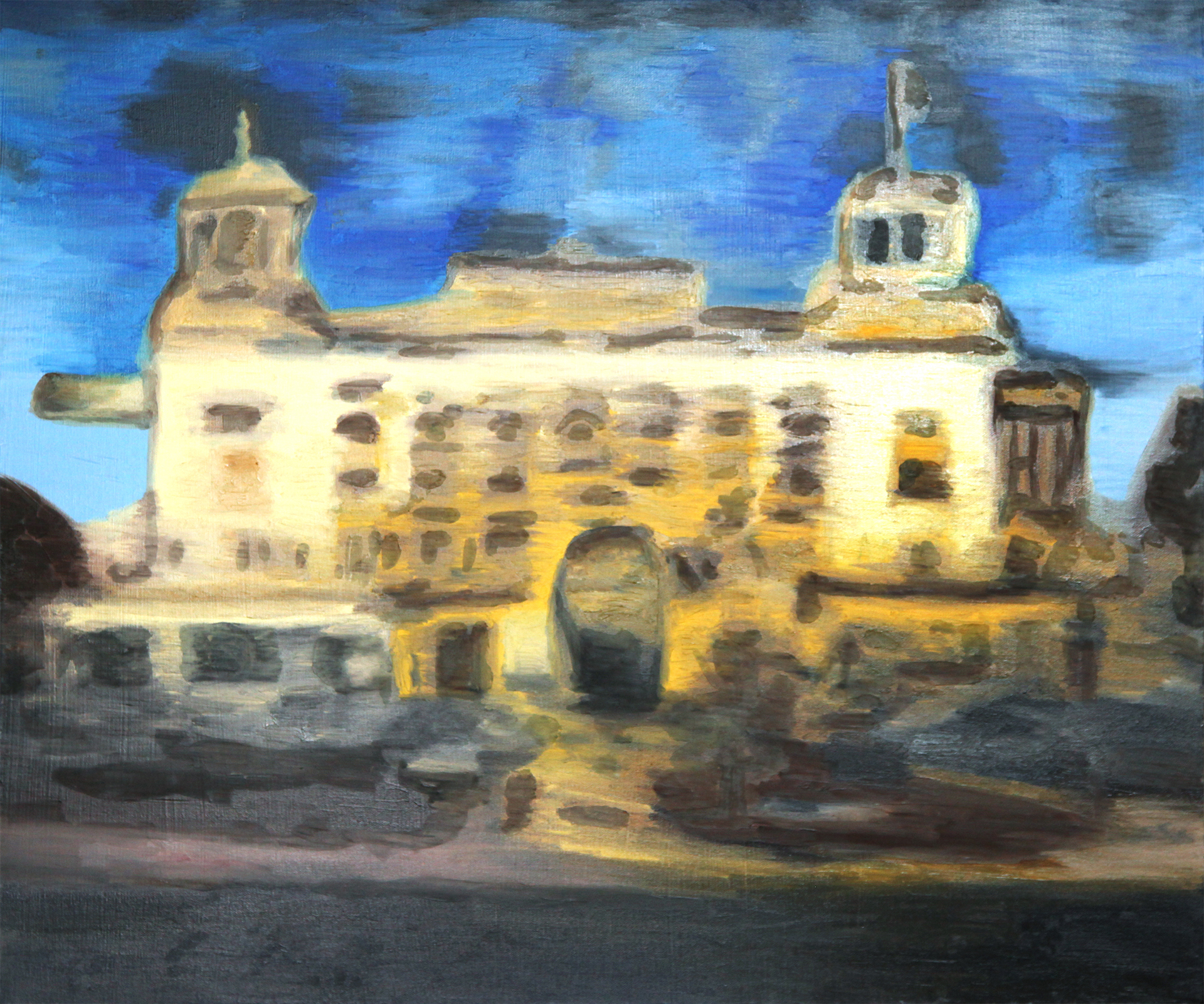My first oil painting
Nakajima Yuta is an artist affiliated with the creative unit Enlightenment. He began working as an artist in 2020, and has been producing collage works filled with erotic, grotesque and nonsensical sensibilities, with motifs of culture from the postwar period to the 1980s.
Originally from Osaka Prefecture, Nakajima aspired to become a designer because "professions with foreign letters sounded cool," and moved to Tokyo after graduating from a design college. He began his career as a graphic designer, working mainly in advertising. In addition to his commercial work, he also actively participates in group exhibitions and special exhibitions, and won the Jury Award and Tokumitsu Kenji Award at the 2021 contest-style art fair "UNKNOWN ASIA 2021."
This exhibition, "TRANSFER," is a departure from Nakajima's previous approach to digital collage, and is comprised entirely of oil paintings, a work he has recently begun to tackle. Nine pieces will be on display, including seven new works created specifically for this exhibition.
Everyone has seen it somewhere, and it brings back memories. However, in today's world where everything is "fast," scenes from old movies tend to be skipped. I collect these scenes from the internet and elsewhere, and transpose them into oil paintings on canvas, a primitive medium, to create new mental landscapes.
"I select objects and scenes that strike a chord with me from old black-and-white movies and videos, and when I transfer the data to another location, friction occurs. It's like a distortion of space-time."
Nakajima creates a sketch digitally, then transfers it to canvas and layers the colors with oil paint. His works, which blur the outlines of characters and landscapes and transform the view into one with a sense of déjà vu, are reminiscent of the British painter Peter Doig.
Depicting the incomprehensibility of human beings
Nakajima has been creating digital collages of his own photographs, scans of old books, and images collected from social media. He has also painted these with acrylic paints. His works, which are made up of a random assemblage of vulgar motifs, are a mixture of the logic of a graphic designer and the passion that threatens to ruin it. What emerges from these images is something that could be called the human condition.
Nakajima, who will be 30 this year, says he admires the Showa era values, when the entire nation would listen to one singer singing on TV. He always listened to music like Misora Hibari and group sounds in the car on his way to and from nursery school, and he has watched all 50 films, including "Otoko wa Tsurai yo." He says he is particularly drawn to the drama "Ashura no Gotoku," written by Mukoda Kuniko, which depicts the completely different and uncontrollable emotions lurking behind each of the human emotions of joy, anger, sorrow and happiness.
It is human nature to see hopeless sadness as comedy. Nakajima says, "I collect images that I think are interesting without any sense of purpose and connect them together to create pictures I never imagined," and his collages are an expression of how humans act out of a lack of control.
Karma appears in ordinary moments
Whether it be his collages or the oil paintings he has been working on this time, Nakajima says that he does not have a final image in mind, but works with his hands "conscious of the unconscious." And he does not include any social messages.
"If I try to paint something concrete, I end up focusing only on that goal. I want to create works that follow my instincts and don't have a set style. Even if I decide on a style, it will continue to change, and I believe that this is how the work will continue to live on."
The reason I changed my technique from digital collage to oil painting was to seek out the five physical senses, such as the color of oil paint, the smell, and the dirt on my hands, which digital painting does not provide. Creativity is a "resistance against self-consciousness," and it is proof that I am not a human being who lives solely for my own purposes.
"On social media, information is replaced in a matter of seconds, while in everyday life we are constantly throwing away new information. There's no doubt that it's convenient, but I want to resist the way individuals are being treated more and more lightly."
In a film, a moment passes in less than a second. It is a scene we see countless times in our lives. Viewers will be able to add their own experiences and memories to Nakajima's abstract paintings, expanding the realm of their imagination. And they will also discover that the eternity of human suffering lies hidden in the most ordinary moments that we all remember.
"I just wanted to balance out the paintings I've been doing, since I've only been painting people. It doesn't really mean anything," he said of his work "Orange roof," which depicts a house. Although there is no sign of people, it certainly makes you think of the house as being connected to people's lives. With new techniques of expression constantly being born, Nakajima depicts the human landscape with paintings that could be considered outdated. Nakajima's work as an artist is certainly evident.









